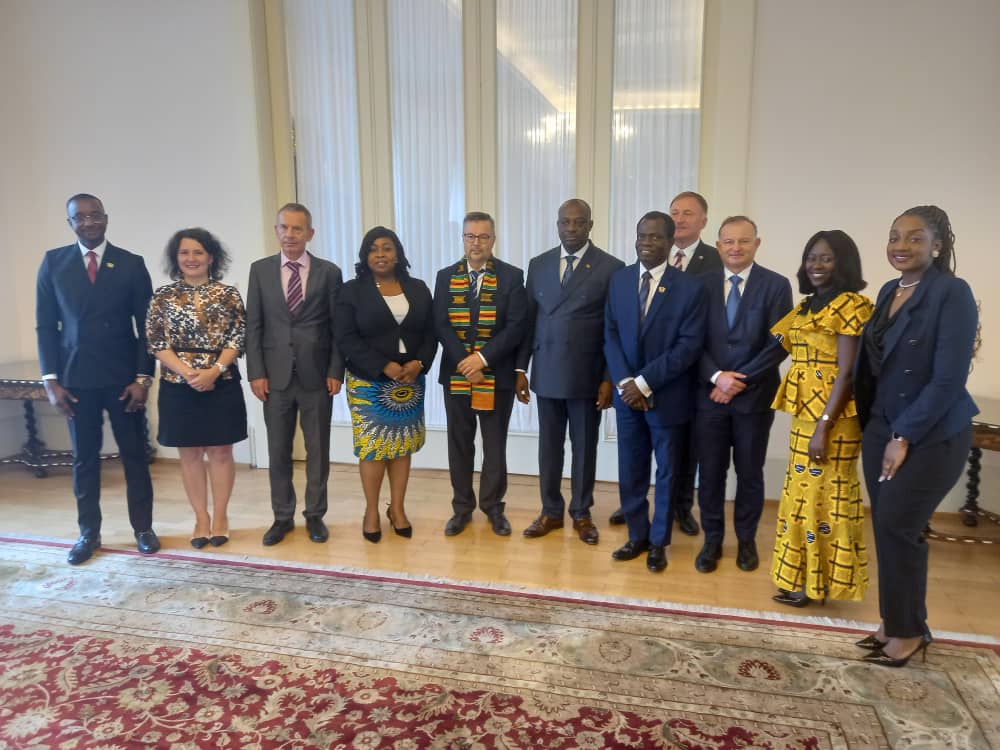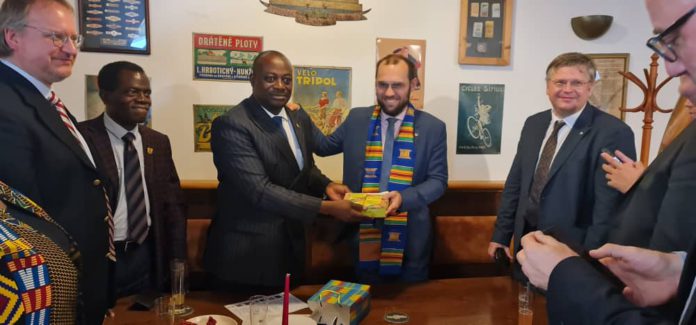The Deputy Minister for Foreign Affairs and Regional Integration and Member of Parliament for the Tatale-Sanguli constituency, Thomas Mbomba, has called on the Czech Republic to continue with more multilateral collaboration to respond decisively to threats to Global Peace and Security.
He noted the long-standing bonds of friendship and partnership that existed between Ghana and the Czech Republic have strengthened and resulted in an exchange at high-level from both countries.
The Deputy Minister disclosed this when he paid a working visit with a Ghanaian delegation to Prague, Czech Republic.
In Prague, he held discussions with his Czech Republican counterpart, Martin Tlapa, on bilateral and multilateral issues of interest to Ghana, as the Czech Republic has taken up the Presidency of the European Union Council.
At the Multilateral level, Mr Mbomba noted with satisfaction that the long-standing tradition of cooperation between the two countries in various international fora, including support for each other’s candidatures for positions at various multilateral institutions and expressed the desire to continue such cooperation.
He stated that Ghana’s priorities as a non-Permanent Member of the United Nations Security Council include working with other UN member states to ensure that the UN Security Council decisively responds to the new threats to Global Peace and Security.

This, he noted, included a balanced focus on the root causes of conflict, more effective peacekeeping mandates and burden sharing between the UN and Regional Organisations such as ECOWAS, though sustainable funding by the UN for the fight against terrorism, piracy, illicit arms, drugs, human trafficking, violent extremism and addressing climate insecurity.
The Minister added that Ghana will continue to use its tenure at the security council to advocate for global peace and security for sustainable and inclusive development and urged the Czech Republic to support Ghana in that regard.
He also informed his counterpart that the assumption of the Presidency of the European Union (EU) Council by the Czech Republic provides more opportunities for both countries to work closely together on issues of common interest and stressed that the EU is an invaluable partner for international peace and security, as well as the achievement of the SDGs in Africa.
On the situation in the Sahel Region and the Gulf of Guinea, Mr Mbomba stressed that Ghana has always been actively involved in ECOWAS and AU deliberations, including efforts at resolving regional conflicts on the continent, and that the government does not only have a strong interest in the afore-mentioned issues but is also committed to working with its partners, including Czech Republic.
He went on to explain that, the complexity of the problem demands cooperation and capacity building to enable our countries to address the menace.
“Ghana is seriously committed to the fight and is calling on the Czech Republic to support efforts aimed at strengthening our capacity to contribute to the improvement of the security situation in the Region, particularly by implementing preventive counter-terrorism strategies,” he noted.
He said the Political Climate remains fragile in these regions and has been characterized by religious and communal tensions, a general climate of insecurity and recent coup d’états.
The Deputy Minister added that the growing instability in the Sahel is also a growing threat to Coastal Regions and Ghana and ECOWAS count on the support of Czech Republic towards resolving the issues.
He recalled to his Czech counterpart the Accra Initiative and the ECOWAS Security plan and the efforts under Ghana’s leadership to put in place an ECOWAS force to take the fight to the terrorists.
He further indicated that ECOWAS and Ghana, during Ghana’s tenure as ECOWAS chair, were committed to funding the operations out of their own resources but face challenges due to the budget crunch most ECOWAS States are facing.
He, therefore, called for the need for burden sharing with partners in Europe and North America especially, including in the areas of intelligence, logistics, capabilities, training and deployment.

